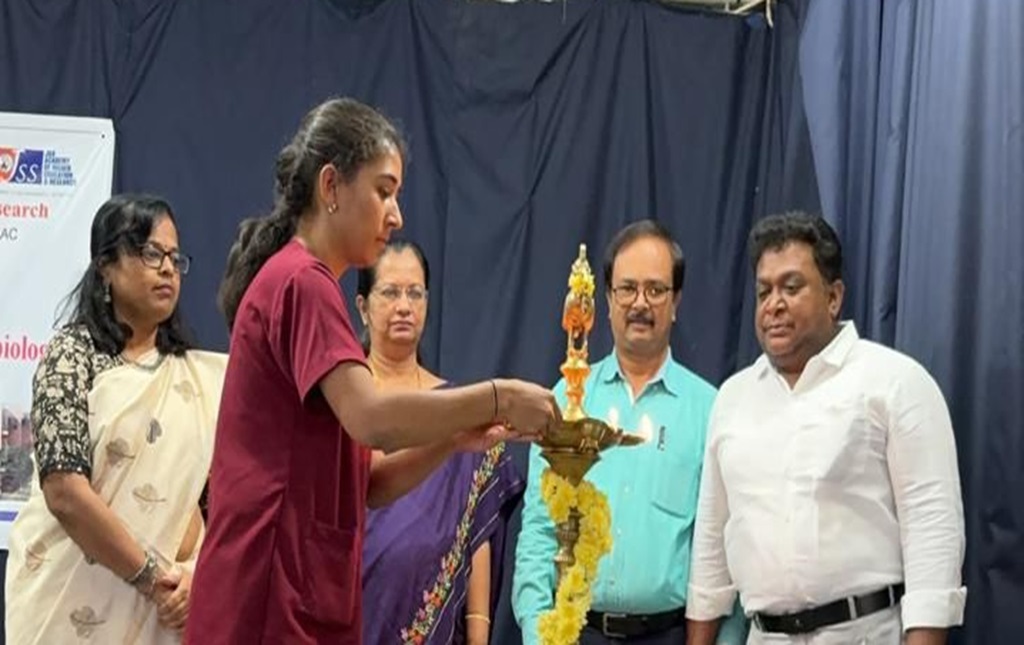JSS Dental College & Hospital
CDE - Program Animal Models in Dental Research organised by the Department of Oral Pathology & Microbiology

Report on the CDE Program “Animal Models in Dental Research” organised by the Department of Oral Pathology & Microbiology on 10.12.24 JSS Dental College & Hospital, Mysuru
A Continuing Dental Education (CDE) program on the topic 'Animal Models in Dental Research' was successfully organized at JSS Dental College and Hospital under the aegis of JSS Academy of Higher Education & Research (JSSAHER), Mysuru. The event aimed to provide participants with an in-depth understanding of the relevance, methodology, and ethical considerations associated with the use of animal models in dental research
The inaugural program commenced with a warm welcome address followed by an invocation and lighting of the lamp. Dr Dhakshaini, Principal of JSS Dental College & Hospital spoke a few words on the relevance of animal models in research especially in higher education institutions. The inaugural program concluded with a vote of thanks by Dr.Vidya G Doddawad, HOD, Department of Oral Pathology & Microbiology
The speakers wereSaravana Babu, Professor, Department of Pharmacology, JSS College of Pharmacy and Director, Center for Experimental Pharmacology & Toxicology, JSS Academy of Higher Education & Research, Mysuru K. L. Krishna, Associate Professor and Head of Department, Department of Pharmacology, JSS College of Pharmacy, JSS Academy of Higher Education & Research, Mysuru
Dr. Saravana Babu delivered an insightful lecture on the significance of animal models in research. He elaborated on the different types of animal models used, their applicability in studying various conditions, and the translational potential of such studies to human clinical trials. He also emphasized the role of the Center for Experimental Pharmacology & Toxicology in fostering cutting-edge research.Dr. K. L. Krishna focused on the ethical and regulatory framework surrounding the use of animal models in research. His presentation provided valuable information on compliance with guidelines such as CPCSEA (Committee for the Purpose of Control and Supervision of Experiments on Animals) and the necessity of maintaining humane practices in animal experimentation. He also discussed advancements in the field of pharmacology that aim to reduce animal usage
The sessions were followed by a vibrant Q&A segment where the participants actively engaged with the speakers, seeking clarifications and discussing potential research collaborations
The program witnessed enthusiastic participation from 51 delegates, including postgraduate students, faculty members, and researchers









